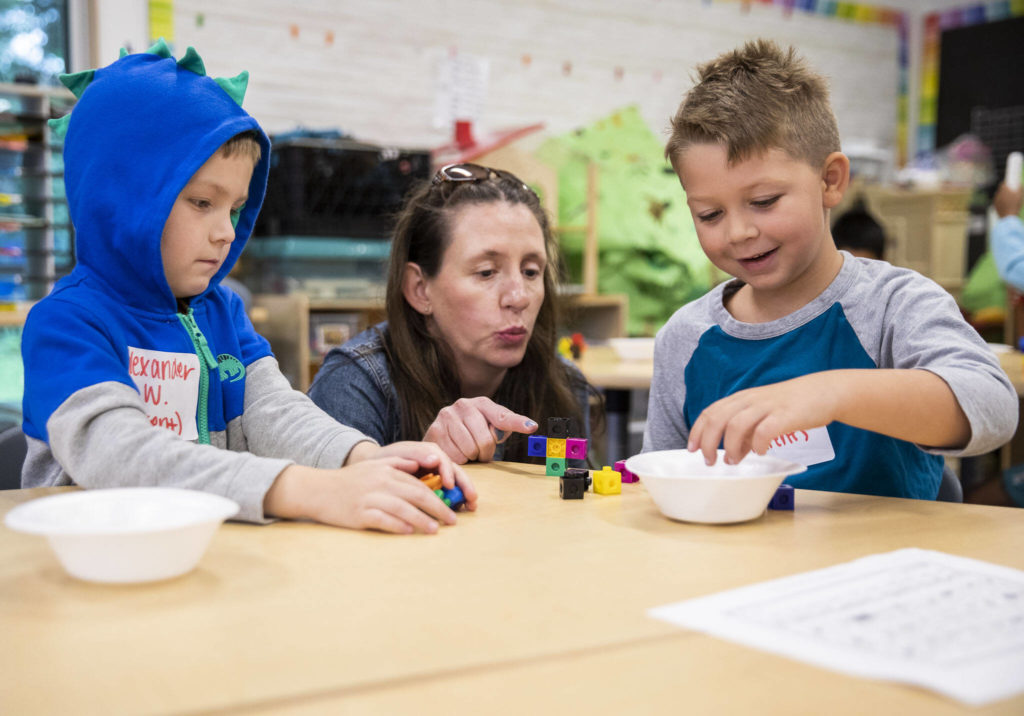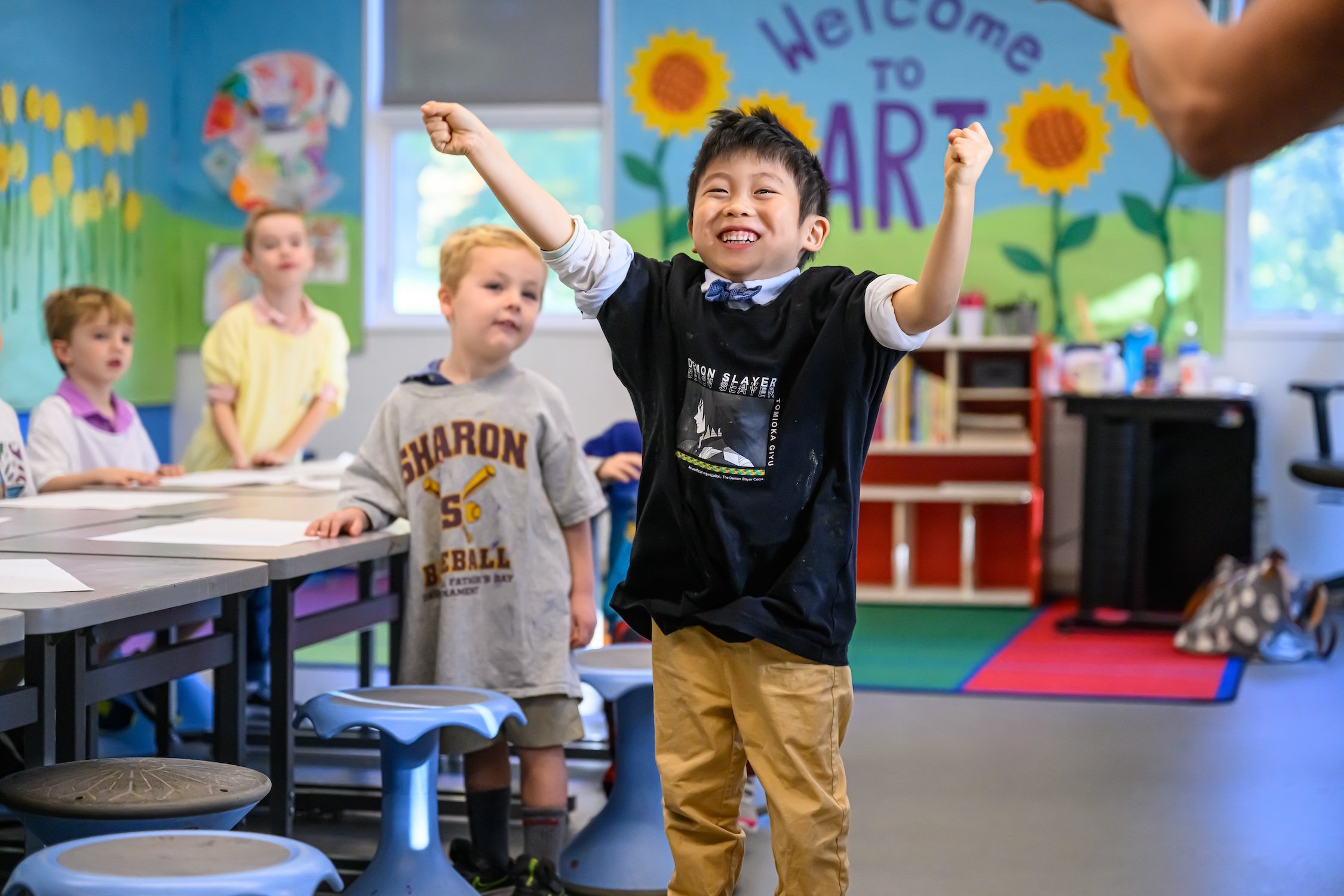How Grade School students grow through science discovery projects
Comprehending Elementary School: Secret Facts and Amazing Activities for Every Pupil
Elementary school serves as a crucial foundation for pupils, mixing academic learning with the development of social abilities. This period is necessary for promoting emotional knowledge and durability. Engaging tasks can enhance inquisitiveness and inspiration, however the challenge depends on discovering the best equilibrium. As parents and educators browse this landscape, comprehending the multifaceted nature of elementary school comes to be essential. What strategies can properly support pupils in this transformative phase?
The Importance of Social Abilities in Elementary School
Scholastic understanding is crucial, social abilities play a crucial function in quality school advancement. Throughout these formative years, children discover to interact with their peers, bargain disputes, and build relationships. Social skills encompass a variety of proficiencies, consisting of reliable interaction, compassion, and synergy. These abilities make it possible for students to navigate the intricacies of social characteristics within the classroom and beyond.
As kids involve in team activities and joint projects, they develop critical social abilities that contribute to their emotional intelligence. This fundamental competence cultivates a feeling of belonging and boosts overall wellness. In addition, children who possess strong social skills often tend to experience better academic results, as they are most likely to get involved proactively in conversations and look for aid when required.

Fundamentally, the growing of social skills during elementary school is not simply beneficial but crucial for fostering a well-rounded person planned for future difficulties.
Stabilizing Academics and Creativity
As students progress via elementary school, balancing academics with creativity comes to be important to their general growth. This balance promotes essential reasoning, analytical, and innovation, skills required for future success. Academic topics offer foundational expertise, while innovative activities encourage pupils to share themselves and check out originalities.
Including creativity right into the educational program can improve engagement and inspiration, allowing pupils to attach with the material on a much deeper level (Kindergarten). Tasks that mix subjects, such as art and science, can promote interest and advertise a love for understanding
Innovative electrical outlets like music, drama, and visual arts aid trainees create emotional knowledge and durability. These experiences add to a well-rounded education and learning, preparing trainees for a rapidly transforming world.
Eventually, focusing on both academics and imagination outfits trainees with a diverse capability, enabling them to browse difficulties and confiscate chances successfully throughout their educational journey and past.
Involving Activities to Improve Learning
Various engaging activities can greatly improve learning experiences for elementary school students. These tasks not only make learning satisfying yet additionally help reinforce crucial principles. Hands-on experiments in scientific research classes allow students to explore concepts almost, promoting interest and much deeper understanding. Interactive narration sessions can enhance literacy abilities while stimulating creativity and imagination.
Team tasks encourage collaboration, teaching students the importance of teamwork and communication. Integrating innovation, such as instructional games and digital tests, can additionally astound pupils' focus and make learning even more vibrant. Arts and crafts jobs can help in the development of fine motor abilities while offering an imaginative electrical outlet.
Furthermore, outdoor tasks, like nature walks or scavenger hunts, attach pupils with the setting and promote physical health. By incorporating these interesting tasks right into the educational program, instructors can develop a promoting knowing atmosphere that accommodates diverse discovering styles and maintains students encouraged.
The Function of Parental Assistance in Education
Adult support plays a substantial function in the educational trip of elementary school trainees. Research shows that when parents proactively take part in their child's education and learning, it positively affects academic performance, inspiration, and total wellness. Private School. Regular involvement, whether with research support or participating in institution occasions, fosters a complacency and strengthens the worth of education
Efficient interaction in between educators and moms and dads improves the discovering experience. Parents who work together with teachers can better recognize their child's challenges and strengths, permitting customized support. This partnership urges liability and establishes high assumptions for students.
In addition, adult attitudes toward education and learning substantially influence kids's point of views. When moms and dads demonstrate a positive outlook on knowing, it cultivates interest and durability in their kids. Inevitably, the structure of adult support is essential fit students' perspectives, actions, and scholastic success throughout their elementary school years.
Constructing a Positive Learning Setting
Creating a positive knowing setting is important for fostering scholastic success and emotional well-being amongst elementary school pupils. Such an environment promotes engagement, encourages partnership, and boosts inspiration. Educators play a significant duty in developing this environment by implementing approaches that focus on support, inclusivity, and respect.
Classroom monitoring techniques, such as clear assumptions and positive comments, are necessary in nurturing a feeling of safety and security. Furthermore, incorporating varied training techniques can satisfy different learning designs, making certain that all pupils really feel valued.
Motivating peer communications and group tasks likewise grows social abilities and a sense of community. Commemorating success, regardless of how tiny, reinforces favorable actions and boosts self-esteem.
Ultimately, a positive discovering setting not only boosts academic efficiency but likewise cultivates emotional durability, helping trainees flourish both inside and outside the class. This foundation is substantial for their overall advancement and long-lasting learning journey.
Approaches for Creating Crucial Believing Abilities
Reliable techniques for creating crucial believing abilities in grade institution include encouraging inquiry-based discovering and advertising analytic activities. Inquiry-based learning fosters inquisitiveness and enables trainees to discover questions, while analytical activities challenge them to apply their expertise in sensible scenarios. Together, these methods enhance students' capability to believe seriously and independently.
Encouraging Inquiry-Based Knowing
Exactly how can teachers promote a classroom environment that advertises inquiry-based discovering? Educators can produce an ambience that urges inquisitiveness by posturing flexible concerns and visit this site promoting conversations that trigger pupils to discover numerous viewpoints. Urging trainees to ask their own questions can better boost their critical reasoning abilities. Integrating hands-on activities and real-world troubles allows trainees to engage straight with the product, fostering much deeper understanding. In addition, offering opportunities for joint jobs can enhance peer-to-peer understanding, where pupils share insights and develop on each other's concepts. By integrating technology and sources that support exploration, instructors can assist pupils take ownership of their learning trip, you can try these out thus cultivating a way of thinking of questions that extends past the class.
Advertising Problem-Solving Activities
While promoting analytical tasks in the classroom, instructors can significantly enhance pupils' vital thinking skills. By including hands-on tasks, team discussions, and real-world situations, educators motivate pupils to evaluate scenarios, identify patterns, and check out multiple remedies. Engaging trainees in joint challenges not just advertises teamwork but likewise boosts their ability to verbalize thinking and warrant their choices. Furthermore, incorporating innovation with coding simulations or exercises can stimulate innovative analytic approaches. Examining pupils' thought processes via reflective techniques permits deeper understanding and enhancement. On the whole, promoting problem-solving activities cultivates an atmosphere where vital assuming grows, equipping students with necessary skills for future academic and life difficulties. These approaches ultimately prepare learners to navigate complex issues with confidence and development.

Often Asked Inquiries
What Age Do Kid Typically Start Grade School?
Kids normally start elementary school at around age six. This age can vary somewhat depending upon regional instructional plans and specific preparedness, however six years old is one of the most common starting point for official education.
Just How Can I Aid My Kid With Homework?
To help with research, moms and dads can produce an organized atmosphere, establish a routine, urge questions, provide sources, and provide support without providing direct answers, fostering independence and crucial reasoning in their kid's knowing process.
What Are Typical Elementary School Knowing Difficulties?
Usual quality school finding out challenges consist of troubles with reviewing comprehension, math ideas, attention period, and social skills. These obstacles can impact academic efficiency and need tailored assistance to assist students achieve their complete capacity.
How Can Moms And Dads Communicate Effectively With Educators?
Effective interaction in between teachers and parents can be achieved via routine updates, open discussions, arranged meetings, and active listening. Developing a collective partnership promotes understanding and sustains the kid's educational trip positively.
What Extracurricular Tasks Are Available in Grade College?
Elementary school normally offer a range of extracurricular activities, including sporting activities teams, songs and art programs, dramatization clubs, and academic competitors. These tasks enhance social abilities, foster synergy, and encourage creative thinking among trainees outside the class.

Grade college serves as an essential foundation for trainees, blending scholastic learning with the development of social abilities. Various engaging activities can considerably boost discovering experiences for quality institution trainees. Producing a favorable knowing setting is necessary for cultivating academic success and psychological well-being amongst grade school pupils. Inquiry-based understanding promotes browse around this site curiosity and enables pupils to explore questions, while analytic activities test them to use their expertise in practical scenarios. While cultivating analytic tasks in the classroom, instructors can significantly boost trainees' critical reasoning skills.